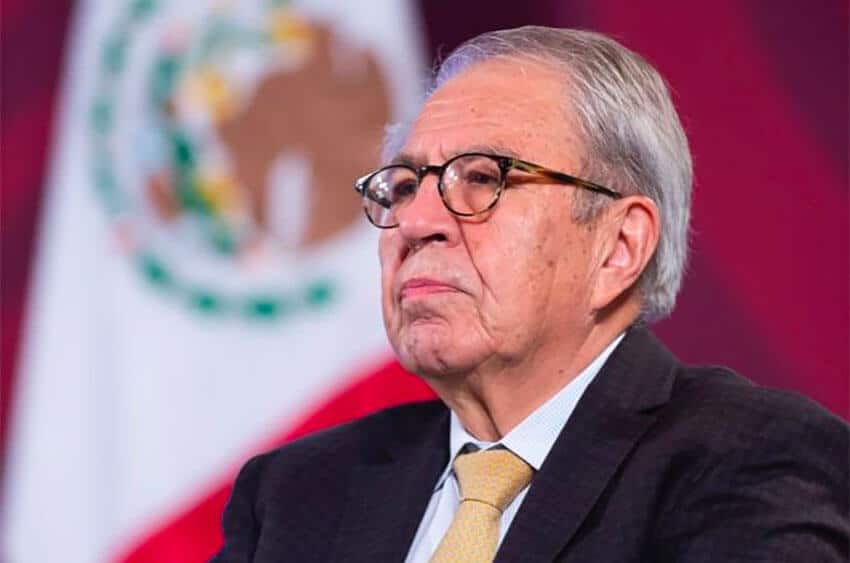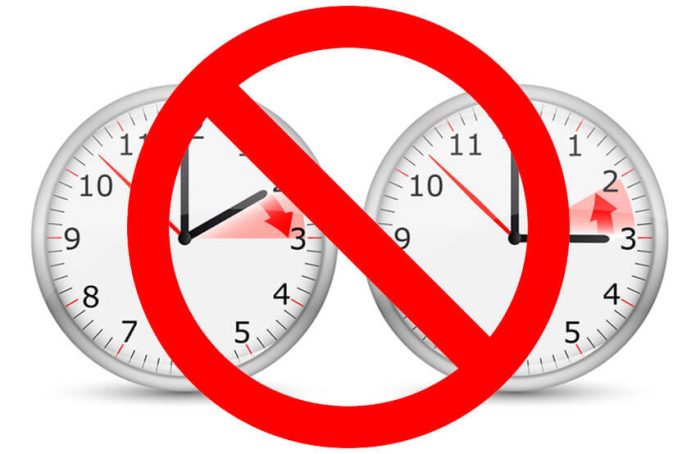President López Obrador on Tuesday sent a bill to Congress to eliminate daylight saving time, making good on a promise he made last month.
The bill only requires a simple majority to pass the federal legislature, meaning that it is likely to become law. With the support of its allies, the ruling Morena party commands a majority in both the lower and upper houses.
Energy Minister Rocío Nahle and Health Minister Jorge Alcocer appeared at the president’s morning press conference on Tuesday to present arguments in favor of getting rid of the twice-a-year time change.
Nahle asserted that there is widespread rejection of the practice among citizens and that the energy savings generated by daylight saving time are “very low with respect to total consumption.”
“There is no [positive] impact on family expenditure,” she added. “… According to scientific evidence, there are no significant changes in sunlight in countries near the tropics. Therefore there is no justification,” Nahle said.
To support her claim of widespread rejection of summer time, the energy minister noted that a recent Interior Ministry survey found 71% support for elimination.
Alcocer presented a long list of reasons why changing clocks twice a year is a bad idea. “Humans have biological clocks that are tasked with regulating the functions of different proteins and organs,” he began.
“… The time change alters the time we’re exposed to the sun and throws our biological clocks off balance. That’s why several international sleep societies recommend a time schedule without changes and they recommend maintaining winter time permanently. … Winter time promotes a more stable biological rhythm, … it improves intellectual performance and helps to decrease heart disease, obesity, insomnia and depression,” the health minister said.

Alcocer said that adults take three to seven days to adapt to a time change, while children take even longer. “The lack of synchronization with the environment alters our internal temporal order and causes physical problems,” he added.
Alcocer cited numerous problems associated with the twice-yearly time change including drowsiness, irritability, difficulty to concentrate, an increase in the secretion of gastric acid, depression and suicidal thoughts.
“There is greater risk for those who need to concentrate to carry out tasks as the beginning of the day, such as pilots, schoolchildren, teachers, employees and certain workers,” he said.
“… We mustn’t forget that the possible impact could be greater due to the health changes caused by the pandemic,” Alcocer said.
“… There is an association between summer time and the increase in the occurrence of heart attacks, especially in the first week after it is implemented,” he said.
“… Finally, why should we abolish summer time? The first thing we have to consider is that the choice [to have] summer time is political and therefore it can be changed. Several countries are considering the elimination of summer time. Added to that, the Society for Research on Biological Rhythms concluded that the advantages of standard time exceed the advantages of changing the time,” Alcocer said.
“Studies are increasingly showing that the time differences between the social clock and the biological clock challenge health [and] even alter it. So if we want to improve our health we mustn’t fight against our biological clocks. The advisable thing is to return to standard time, which is when the solar clock coincides with the social clock, God’s clock,” he said.
However, God’s clock and health worries may not apply in parts of some northern states where clock changes have been synchronized with states in the southern U.S. to facilitate cross-border trade and other connections.

Energy Minister Nahle said on Tuesday that there would continue to be exceptions in some northern border municipalities.
Former president Ernesto Zedillo established the nationwide observance of daylight saving time by decree in early 1996. As mayor of Mexico City in 2001, López Obrador tried to do away with summer time in the capital.
However, his efforts to put an end to clock changes in the capital, including the publication of a decree, were stymied by the Supreme Court, which ruled that only the federal Congress has the authority to make time zone decisions.
With reports from El Universal and El Financiero
